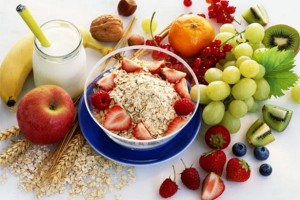Benefits of Healthy Eating
- Proper nutrition promotes the optimal growth and development of children.1
- Healthy eating helps prevent high cholesterol and high blood pressure and helps reduce the risk of developing chronic diseases such as cardiovascular disease, cancer, and diabetes.1
- Healthy eating helps reduce one’s risk for developing obesity, osteoporosis, iron deficiency, and dental caries (cavities).1,2
Consequences of a Poor Diet
- A poor diet can lead to energy imbalance (e.g., eating more calories than one expends through physical activity) and can increase one’s risk for overweight and obesity.1,8
- A poor diet can increase the risk for lung, esophageal, stomach, colorectal, and prostate cancers.9
- Individuals who eat fast food one or more times per week are at increased risk for weight gain, overweight, and obesity.1
- Drinking sugar-sweetened beverages can result in weight gain, overweight, and obesity.1
- Providing access to drinking water gives students a healthy alternative to sugar-sweetened beverages.
- Hunger and food insecurity (i.e., reduced food intake and disrupted eating patterns because a household lacks money and other resources for food) might increase the risk for lower dietary quality and undernutrition. In turn, undernutrition can negatively affect overall health, cognitive development, and school performance.10-12
Eating Behaviors of Young People
- Most U.S. youth
- Do not meet the recommendations for eating 2½ cups to 6½ cups* of fruits and vegetables each day
- Do not eat the minimum recommended amounts of whole grains (2–3 ounces* each day)
- Eat more than the recommended maximum daily intake of sodium (1,500–2,300 mg* each day) .1,3,7
- Empty calories from added sugars and solid fats contribute to 40% of daily calories for children and adolescents aged 2–18 years, affecting the overall quality of their diets. Approximately half of these empty calories come from six sources: soda, fruit drinks, dairy desserts, grain desserts, pizza, and whole milk.5
- Adolescents drink more full-calorie soda per day than milk. Males aged 12–19 years drink an average of 22 ounces of full-calorie soda per day, more than twice their intake of fluid milk (10 ounces), and females drink an average of 14 ounces of full-calorie soda and only 6 ounces of fluid milk.6
Diet and Academic Performance
- Eating a healthy breakfast is associated with improved cognitive function (especially memory), reduced absenteeism, and improved mood.13-15
Credits to www.cdc.gov

